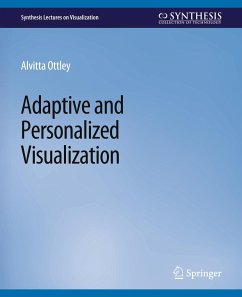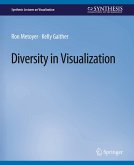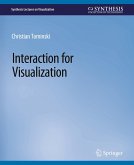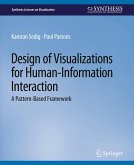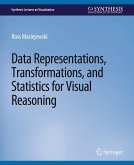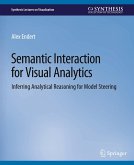There is ample evidence in the visualization community that individual differences matter. These prior works highlight various personality traits and cognitive abilities that can modulate the use of the visualization systems and demonstrate a measurable influence on speed, accuracy, process, and attention. Perhaps the most important implication of this body of work is that we can use individual differences as a mechanism for estimating when a design is effective or to identify when people may struggle with visualization designs.
These effects can have a critical impact on consequential decision-making processes. One study that appears in this book investigated the impact of visualization on medical decision-making showed that visual aides tended to be most beneficial for people with high spatial ability, a metric that measures a person's ability to represent and manipulate two- or three-dimensional representations of objects mentally. The results showed that participants with low spatial ability had difficulty interpreting and analyzing the underlying medical data when they use visual aids. Overall, approximately 50% of the studied population were unsupported by the visualization tools when making a potentially life-critical decision. As data fluency continues to become an essential skill for our everyday lives, we must embrace the growing need to understand the factors that may render our tools ineffective and identify concrete steps for improvement.
This book presents my current understanding of how individual differences in personality interact with visualization use and draws from recent research in the Visualization, Human-Computer Interaction, and Psychology communities. We focus on the specific designs and tasks for which there is concrete evidence of performance divergence due to personality. Additionally, we highlight an exciting research agenda thatis centered around creating tailored visualization systems that are aligned with people's abilities. The purpose of this book is to underscore the need to consider individual differences when designing and evaluating visualization systems and to call attention to this critical research direction.
These effects can have a critical impact on consequential decision-making processes. One study that appears in this book investigated the impact of visualization on medical decision-making showed that visual aides tended to be most beneficial for people with high spatial ability, a metric that measures a person's ability to represent and manipulate two- or three-dimensional representations of objects mentally. The results showed that participants with low spatial ability had difficulty interpreting and analyzing the underlying medical data when they use visual aids. Overall, approximately 50% of the studied population were unsupported by the visualization tools when making a potentially life-critical decision. As data fluency continues to become an essential skill for our everyday lives, we must embrace the growing need to understand the factors that may render our tools ineffective and identify concrete steps for improvement.
This book presents my current understanding of how individual differences in personality interact with visualization use and draws from recent research in the Visualization, Human-Computer Interaction, and Psychology communities. We focus on the specific designs and tasks for which there is concrete evidence of performance divergence due to personality. Additionally, we highlight an exciting research agenda thatis centered around creating tailored visualization systems that are aligned with people's abilities. The purpose of this book is to underscore the need to consider individual differences when designing and evaluating visualization systems and to call attention to this critical research direction.

